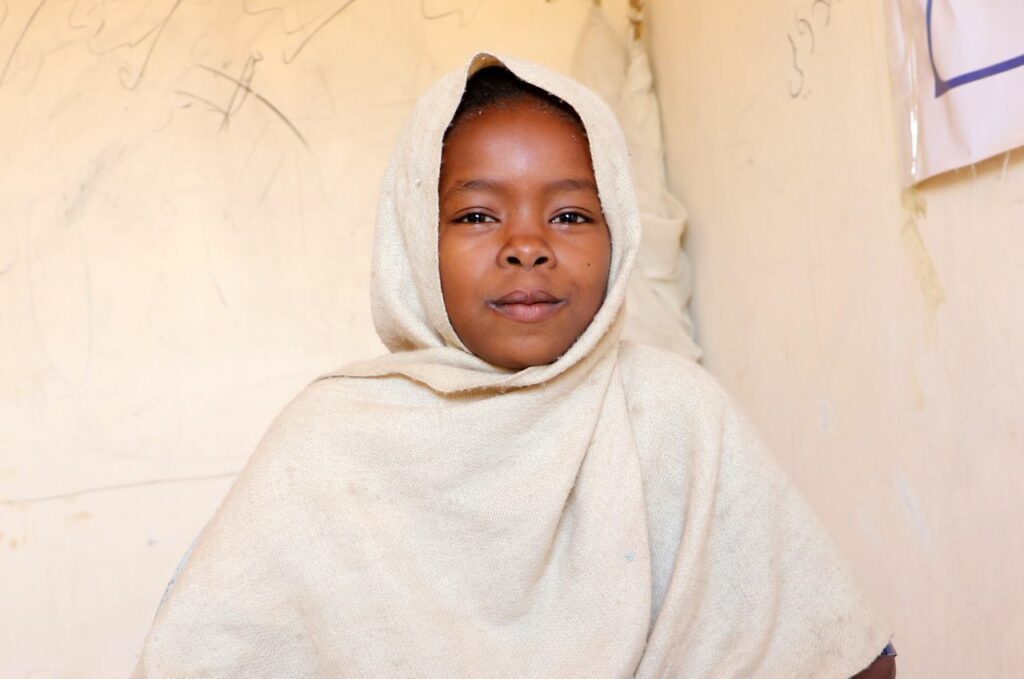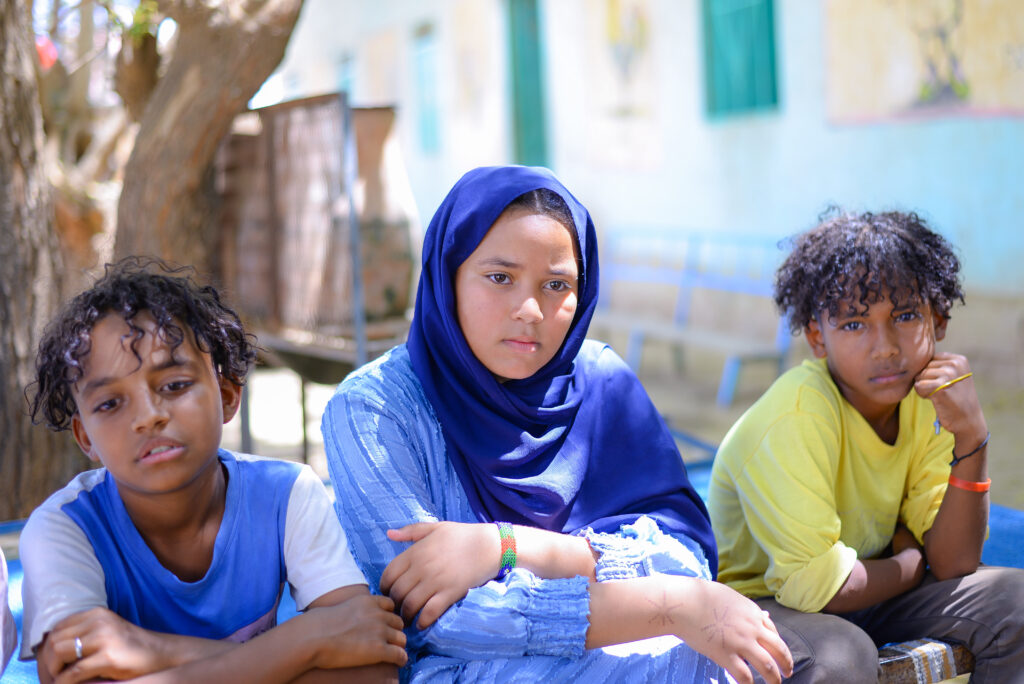By: Hawa Eltigani, Deployable Child Protection in Emergency Specialist, Plan International
In Sudan, an often-overlooked crisis is unfolding behind the conflict; hunger is rapidly becoming a severe emergency. As World Hunger Day approaches on 28 May, it is crucial that we turn our attention to the millions of Sudanese children whose futures are being taken away by malnutrition. This heightened vulnerability exposes them to increased risks, affecting their physical, social, and emotional development.
In the past year, since the conflict between armed forces erupted, the situation has grown dire. Over 25 million people require humanitarian aid, with children making up more than half of those in need. Alarmingly, many are living in IPC 4 conditions, indicating that they are one step away from famine. This level of food insecurity is catastrophic, stripping away children’s health and pushing families into desperate situations.
The hunger crisis in Sudan is not just about the lack of food, but the devastating domino effect it triggers. Malnutrition weakens children’s immune systems, stunts their growth, and hampers cognitive development, undermining their future – both academically and economically.

“We are currently living at a school that has been suspended due to the war. Being unable to go to school is becoming my greatest disappointment. Having no school is affecting me, I always feel sad, upset, and worried,” says Halima, a 12-year-old girl who was displaced from her home in Khartoum due to the conflict.
But the impact doesn’t end there. Hunger forces families to employ negative coping strategies such as child labour and early marriage. Each skipped meal can mean a lost chance at education, a step towards exploitation, or an increase in gender-based violence.
As someone who has witnessed the heartbreak in Sudan first-hand, I’ve seen young faces lose their brightness, not just from hunger but from the heavy burdens they carry far too soon. On my recent visit to a displacement camp, I spoke with children who shared their longing for home and the traditions they cherished. They expressed missing the family bonds they once shared, such as sitting together and sharing meals.
“Our dreams have been shattered. My dream was to become a doctor like my father. I pray for peace and that we can return to our homes and the situation becomes better. I want peace throughout the country and to live in security. We have lost everything beautiful in our lives.” says 14-year-old Angham, displaced with her family from their home when the fighting spread from Khartoum to Al Jazirah state.
Adjusting to life in the camp, including to the type and quantity of food they receive, has been challenging for them. It’s not just the children in the camps who are suffering; those living in host communities are also struggling. Many receive just one meal per day, with some getting only milk or fruit. Adolescents are resorting to early marriage to help distribute food rations within their families, and some share their food with their siblings.
These conversations underscore the urgent need for targeted intervention. Plan International has been at the forefront, providing life-saving services such as cash support to the most vulnerable families, as well as separated and unaccompanied children.
Additionally, we offer mental health and psychosocial support services through our mobile child-friendly spaces. Here, children can express their views in different ways, finding solace and a sense of normalcy amidst the turmoil. Muna, a 13-year-old girl says, “We have made friends here at the gathering point (school) and we enjoy spending time with the other children here. We have no idea what will happen in the future, but we hope the war ends and everything calms down so we can go back home.”
We urgently need more funding. Our programmes need $5 million to expand our reach over the next six months. These funds would directly support feeding programmes, educational initiatives, and protective services that shield children from the worst impacts of this crisis.

Yet, even as we address these urgent needs, children are not mere victims. Each day, despite unimaginable challenges, they demonstrate incredible resilience and agency. They play, learn, and share their hopes with us, showing a strength that deserves recognition and respect. “I hope that the situation in the country stabilises, and we can return to our homes and schools. On behalf of all the girls of Sudan, I appeal to the leaders of the country to solve these problems and return us to our homes and schools,” Angham adds.
The global community must act. We cannot allow the children of Sudan to fight this battle alone. Donating to organisations who are responding, advocating for peaceful resolutions, and holding leaders to account are actions we all can take to ensure these children have the future they deserve.
As we observe World Hunger Day, let us remember that the fight against hunger is not just about food – it’s about protecting the youngest among us, restoring their dignity, and supporting their growth into healthy, capable adults. The children of Sudan have shown their strength; it’s time for us to support them with ours.
Hawa Eltigani is a Deployable Child Protection in Emergencies Specialist with Plan International. Away working in South Sudan when the conflict erupted in Sudan, she was on her way home to celebrate Eid with her family. Forced to cancel her plans, Hawa instead dedicated herself to helping children affected by the war who had crossed over the border into South Sudan. For months, Hawa witnessed their suffering first-hand. She saw children who had lost their homes, families, and sense of normalcy. Despite the challenges, Hawa finds strength in supporting her people and helping children find hope for the future.